A Child's Ground of Discovery
An interview with Margaret Flinsch,
PARABOLA: WINTER 1996
Margaret Flinsch, a longtime student of G. I. Gurdjieff and sister of D. M Dooling , the founder of PARABOLA, has explored many different approaches to the education of the young. She founded one of the first nursery schools in America in the 1920s and more recently established the Blue Rock School of West Nyack, New York, where children's natural intelligence is allowed to guide their learning and their questions are encouraged. In this way, the children come to live their own knowledge while continuing to search for an understanding of the world within and without. I brought my questions on play and work as I visited her home in White Plains, New York one warm summer day. -David Appelbaum
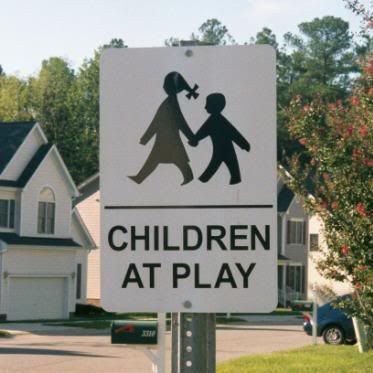
PARABOLA: How do you understand play in human life?
MARGARET FLINSCH: I think of play first and foremost as children's play. Children's play is their approach to understanding what's there. In contrast, adults' play is an attempt to retreat from effort. Yet a lot of effort goes into play for both children and adults. Children's play uncovers their world. There are certain things children are obliged to do, but in play where there is no obligation they come to something new and fresh. Play is a trying out experimenting. It's not a joke, children don't play for fun. They play for real, and adults don't understand that; they laugh at what children do. To children, play is very serious. As a child, I remember that we couldn't wait to get out of school to go home and take on our roles of knights, ladies, dragons, whatever we were on the weekends. For children, play is real and work is often meaningless obligation. Yet when given the role of carrying something out there is no opposition. Children like to work hard and well, when it makes sense to them. It's the question of how to find the right balance between the joy of execution and the satisfaction from the result.
P: Is the need to play inborn?
MF: Play is basic. There's no "getting there" in play. It's all in the circumstances one is involved in.
P: How is the sense of play supported?
MF: Playing along. Joining in. Dropping off that sense of compulsion. Play is always of the moment, what calls one at that very moment. Certain people drop everything when it's a moment of play, and then they're accused of being irresponsible. Though work is needed, life couldn't go on without play.
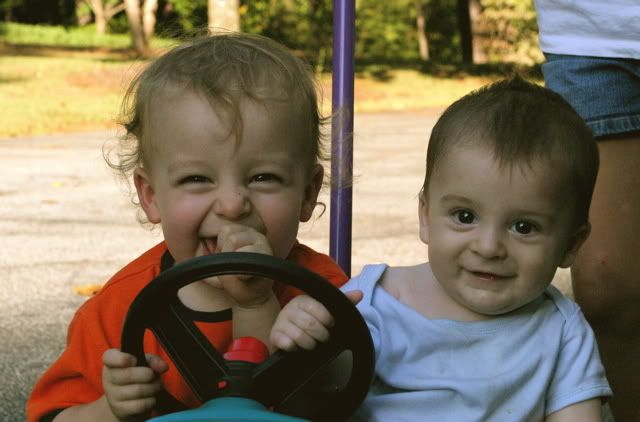
P: What happens when a child's play is thwarted or blocked?
MF: Children are rechanneled into a kind of rationality. They accept that one thing has to follow another thing. But often when they are engaged in constructing an aspect of who they are, some grown-up tells them, 'You have to come now and get your hands washed for supper." The way children are interrupted in their play by adults is brutal. Maybe it has to be, but it seems as though more understanding of where they are in their play is needed. Play is the vehicle of their growth. Play is exploration, a growing process. At a later point they need to conform to the strictures of time. In play, there's no time. Once, working with a group of children, we were engaged in a project and decided that we wouldn't keep track of time, and would just go on doing whatever we were doing. It was a very serious work: we were building things. It was the first occasion in which a child came and asked me if she could go to bed.
P: Is the use of the attention different in play and work?
MF: It's a mistake to make too big a division between the two. We seem to be defining work only as the carrying out of what has to be done according to outer necessity. But working is working at something, applying energy to a specific task. Given the need for this task to be carried out, that energy has to be brought to it over and over and over again. In other words, there's a required repetition. If something is new to a child, he or she can continue to do it over and over and over again in play. Work is in play. Work is not separate from play. If we divide the two the mistake comes there.
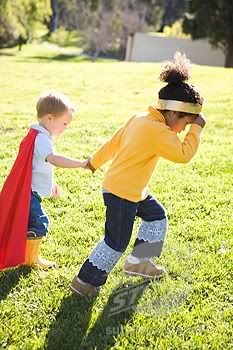
P: When it comes to inner work, does our division of work from play create difficulties for us?
MF: The way you put the question, it's difficult for me to understand how to look at it. Attention is the real link between play and work. Play is a kind of movement around itself, attention to itself. In contrast, work goes in a direction, a way. The two movements belong together. To someone who has forbidden himself or herself to play by falling into a routine of obligation, play suddenly comes as an interruption. The attention is usually caught by one movement or the other. We have no free attention. Either my attention is riveted on the computer, the cleaning job, or driving the car, or it's available for appreciation of what's around me and my own life. When one is near a person who encompasses both moments, one feels that this person is very alive. In simple people, one feels that they are immediately available in a way that overcomplicated, mental, modern people, like us, are not. Playfulness and a readiness to work go together. We're conditioned to be regulated and to fit in with an existing outer world. Small children are free of that routine.
---At that moment, one is a little freer and more open to what is. The freedom is an avenue to play.---
They're in touch with a vitality that we don't feel. When children go to school, long before they're ready to relinquish this immediacy, we set forth prohibitions. Energy is no longer available for exploratory experience. Look at what we do today: we're putting first-graders in front of computers. By introducing a mechanical outer stimulus, we close off the channel to their inventiveness. It thwarts the wish to discover a real world for themselves. We're killing this wish in children. It's frightening to imagine what's going to happen to the human race. That's why, for instance, in a school like The Blue Rock School, the teachers are struggling to allow play for children and not to squash it.
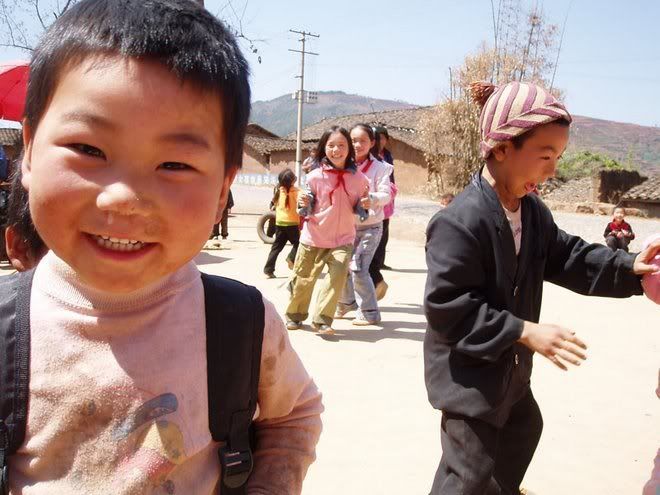
P: Is it possible for an adult to find his or her way back to that self-contained movement of energy?
MF: Not through games and sport, or "vacations of relaxation." I can more easily say what I think is not possible! Children and adults are both helped by shocks, when in a moment one is disarmed from the usual conditioned response. At that moment, one is a little freer and more open to what is. The freedom is an avenue to play.
P: Is play connected to resourcefulness? I mean, being available to what there is in the moment?
MF: It's more recklessness than resourcefulness. Resourcefulness comes when one finds unexpected consequences of recklessness. Children are completely reckless. They'll climb a tree or get on the roof of a house, and the agonized adult below is afraid that they will fall. I have a great belief in the human wish to be who one is and to affirm it. Children have this until they give in to being afraid. If we could interfere less with that wish and support it more, maybe a sense of self could begin to grow.
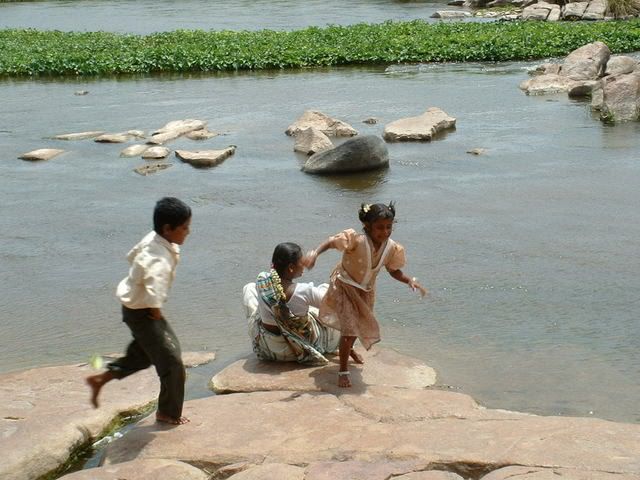
P: One speaks also about playing a role in the theater or in life. Is this at the core of playing?
MF: It is. I don't let on that secretly I am what I tell myself I am. This begins very early on. It can have a bad side in that my image of myself becomes me and colors my whole life. The roles that children have are infinitely more real to them than the fact that they have a name. Secretly, they know perfectly well that they're not the name, but something else. That other identity has a whole life. When this gets to an extreme, it can become a terrible illness. Autistic children retire into their own world, which is completely real for them. But all children have an inner world more real than the outer. When I was only four, I was trained to pray at night. I said my prayers at my mother's knee, but I soon felt that I had to have private prayers. So I told her that I would keep on with these prayers with her, but would also have my private prayers.
---The secret is something that somehow needs to be guarded inside, maintained, kept alive. ---
P: So there's a kind of secret in play, isn't there?
MF: Absolutely. Absolutely.
P: And I seem to get in trouble when I lose that secret.
MF: Yes.
P: And nobody else can really tell me that secret again.
MF: No. The secret is something that somehow needs to be guarded inside, maintained, kept alive.
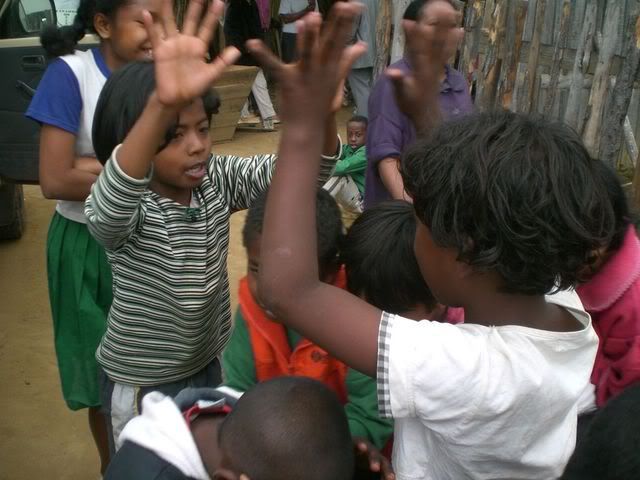
P: I suppose that a child learns to guard the secret too, at a certain point, if he or she survives as a child.
MF: The children who are able to maintain it will be infinitely better workers, because they work with life.
P: And work, for the child?
MF: Children love "working," which is not the same thing as "work." Work can be donkeywork, terrible, mechanical work, but "working" is how I engage myself. This engagement can be very alive, if my own wish to do well is maintained in it. When that's lost, then I'm swallowed. When the loss begins early with children, it is very frightening to see. The effect is in the attention, which becomes so dispersed that they no longer can concentrate.
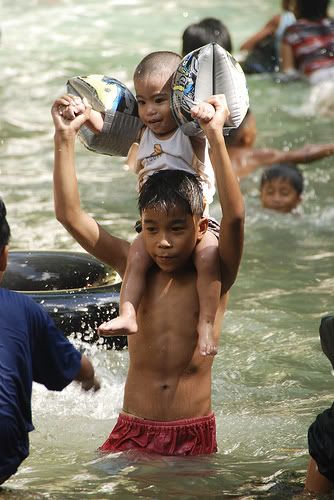
P: What about attention deficit disorders?
MF: These terms, like "attention deficit disorder" or "hyperactivity," didn't exist fifty years ago. When television came in, they came in. Television is mild in comparison to the Nintendo games and other new "inventions" that we succumb to with an unquestioning attitude. We seem to be completely paralyzed in our minds. We never ask why. What has happened to the human mind?
P: What is a "good teacher" in your opinion?
MF: A teacher who wishes to learn how to be much more alert to different signals in a child. In modern public schooling the size of the classes is one reason that prohibits that attentiveness in teaching, because no human being can be aware of so many children at once. The system is quantitative, and therefore becomes a factory rather than a school.
P: And the teachers who teach adults about play?
MF: Who teaches adults about play? [Laughs] Play leaves open how it's going to come out. If a person is in a situation in which he or she already sees where it has to go and what they have to do, everything is geared towards that end. If I work directly toward that result, I miss the opportunities as I go along. There can be no play. If a teacher recognizes that the situation is a learning situation, they're more exploratory in trying to find their way. There is an approach that allows a child all of a sudden to say, "Ah, I've got it." Then there's an extra- ordinary joy shared between the child and the teacher.
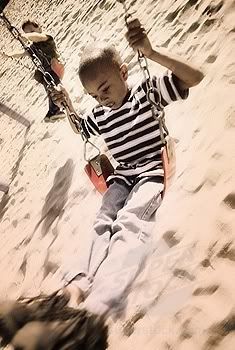
P: Does playing have to do with the facing of an openness?
MF: Facing an unknown outcome. There are people who play games either to win or to play. You hear arguments from people who haven't won and who are very angry about it. Others will say, "It's just a game." Children use the word "fun" a lot. When they work tremendously hard, they say, "That was such fun." I remember one time when we had to get a lot of coal moved to a cellar. With a cart and wheelbarrows, some small boys were transporting the coal. Everybody was very black. And after lunch someone suggested that we should stop, and there was a great outcry. "No! We want to go until it's finished." Now was that play or work?
P: It was fun.
MF: It was fun, growing up and being like adults without being an adult. Being like an adult, I work as hard as an adult. When given a light thing to carry, obviously I'm being treated as a child. But if I'm given a big, heavy box and told, "You can do that," I do it and feel wonderful afterwards. I've worked very hard. If a child wishes to bring all his energy to carry out something, he gains a sense of being himself. He knows that he is a human being. Perhaps the greatest trouble with our lives is that we forget. We don't remember how we were even a week ago. You can be certain we don't remember how we were when we were younger. Our memories of childhood are tremendously sparse. We would have answers to all these questions if we had a better memory.
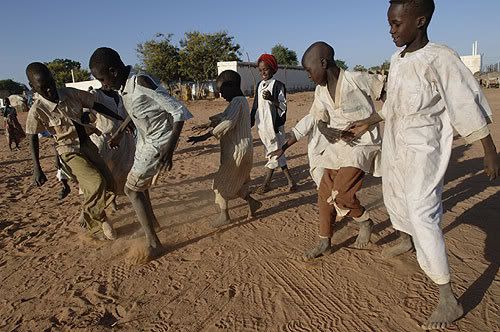
{Images linked/Programming by DPC}

